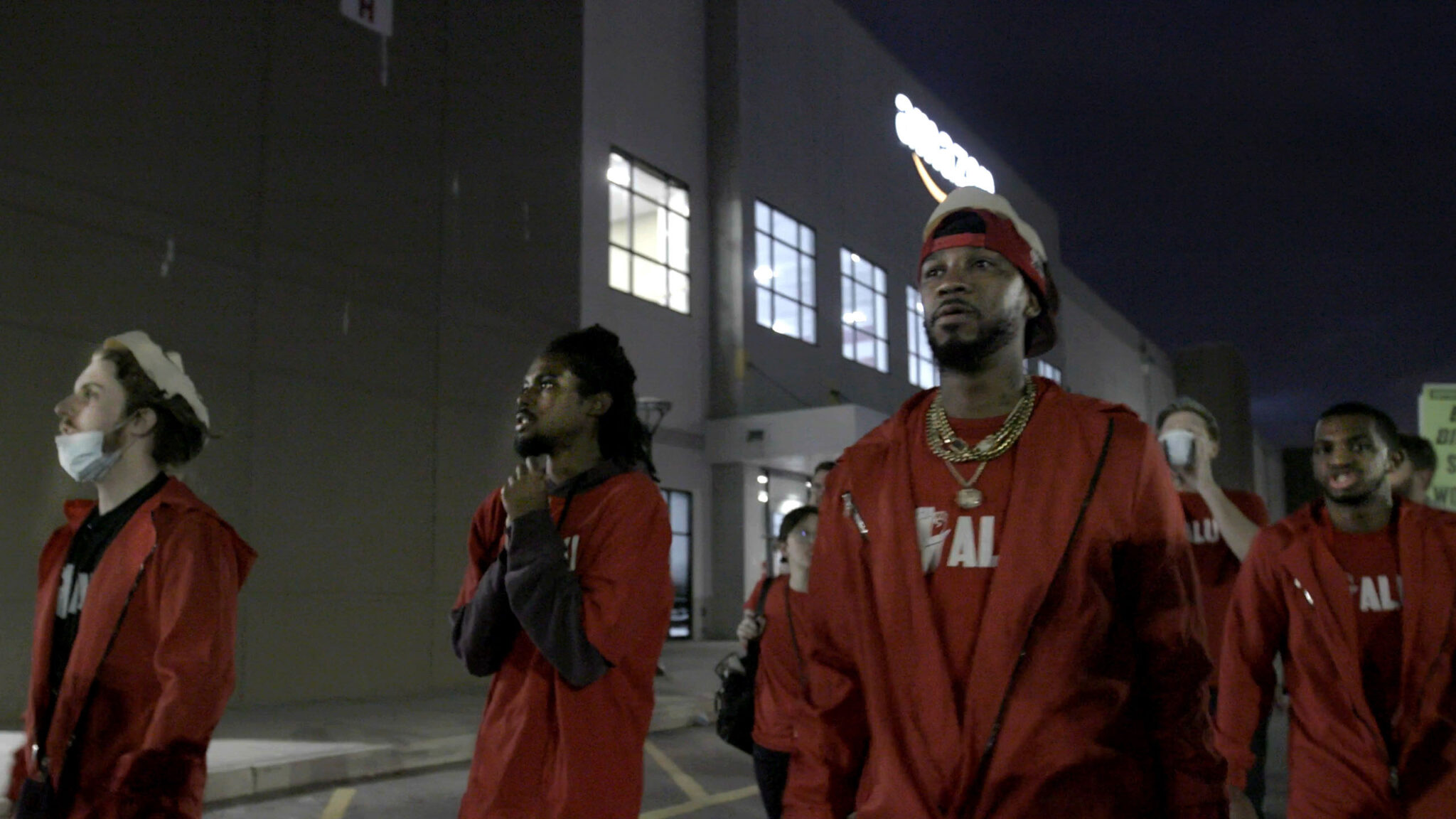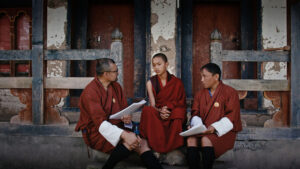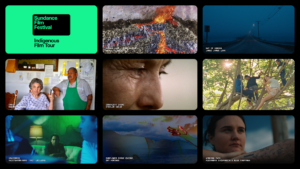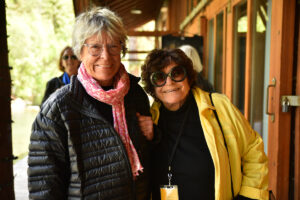By Lucy Spicer
One of the most exciting things about the Sundance Film Festival is having a front-row seat for the bright future of independent filmmaking. While we can learn a lot about the filmmakers from the 2024 Sundance Film Festival through the art that these storytellers share with us, there’s always more we can learn about them as people. This year, we decided to get to the bottom of those artistic wells with our ongoing series: Give Me the Backstory!
Stephen Maing’s work as an artist has been compelled by a sense of urgency since the beginning. “Growing up the son of immigrants in a large extended family whose lives were informed by loss, war, and intergenerational trauma was probably early training in the study of human behavior,” he recalls. “As a young person, I was desperate to escape, engage the world, and make socially and politically conscious art and music.”
Maing’s latest directorial effort is definitely one that most of the world could — and should — engage with, as it confronts a brand recognized across the globe: Amazon. Co-directed by Brett Story, Union follows the groundbreaking Amazon Labor Union in Staten Island, New York, led by the union’s unshakable founder, Chris Smalls. “I hope people feel the indelible sense of urgency and purpose that we did while filming. That for most workers, it is no small decision to challenge one’s own employer, let alone a ruthless adversary like Amazon,” says Maing. “For our organizers, every step forward was hard-earned, and watching the harnessing of collective power in real time was harrowing but wildly inspiring.”
Union is the fourth documentary Maing has directed with support from Sundance Institute and the second to premiere at the Sundance Film Festival. Maing and Story took home the U.S. Documentary Special Jury Award for the Art of Change at the 2024 Festival. Read on to hear more from Maing, including his advice to emerging filmmakers and what legacy he hopes to leave with Union.
What was the biggest inspiration behind Union?
Our larger economic and institutional structures have always profited on the exploitation of the poor, the minority, and the immigrant, a subject I spent seven years exploring in my previous work on discriminatory and data-driven policing. So when workers in Staten Island decided to unionize, I was struck by the troubling familiarity of their complaints, like productivity quotas, retaliation, and the culture of fear — but also newly inspired by an exciting and defiant energy of worker-led organizing and activism. The efforts of these radicalized workers felt like a long-overdue chapter in our country’s long history of collective struggle, one our entire team was inspired to follow and understand.
Describe who you want this film to reach.
The widest diversity of viewers — and, of course, workers considering organizing anywhere!
Why does this story need to be told now?
We are living in a time when the world’s 10 wealthiest men more than doubled their fortunes during a pandemic, while the livelihoods of 99% of humanity declined. And the largest international employers, like Amazon, regularly use illegal union-busting tactics to suppress worker power. At the same time, there is immense energy and public support for unionization. Our film is an effort to document this historic crossroads and the colossal challenges Amazon workers faced in their campaign to unionize. Their efforts could not be more urgent and essential in defining what the future of work and workplace organizing will look like, and the stakes have never been greater.
Your favorite part of making Union? Memories from the process?
I will never forget the day the organizers won their first election. The feeling was electric, joyful, a complete relief. I will likewise never forget the utter devastation when they lost their next. I recall so many long days and nights watching them walk the line between hope and disillusionment, but rarely give up. Seeing many of them learn to organize for the very first time, then discover their talents and capacity, and witness their impassioned determination during such a challenging and consequential time fills me with gratitude.
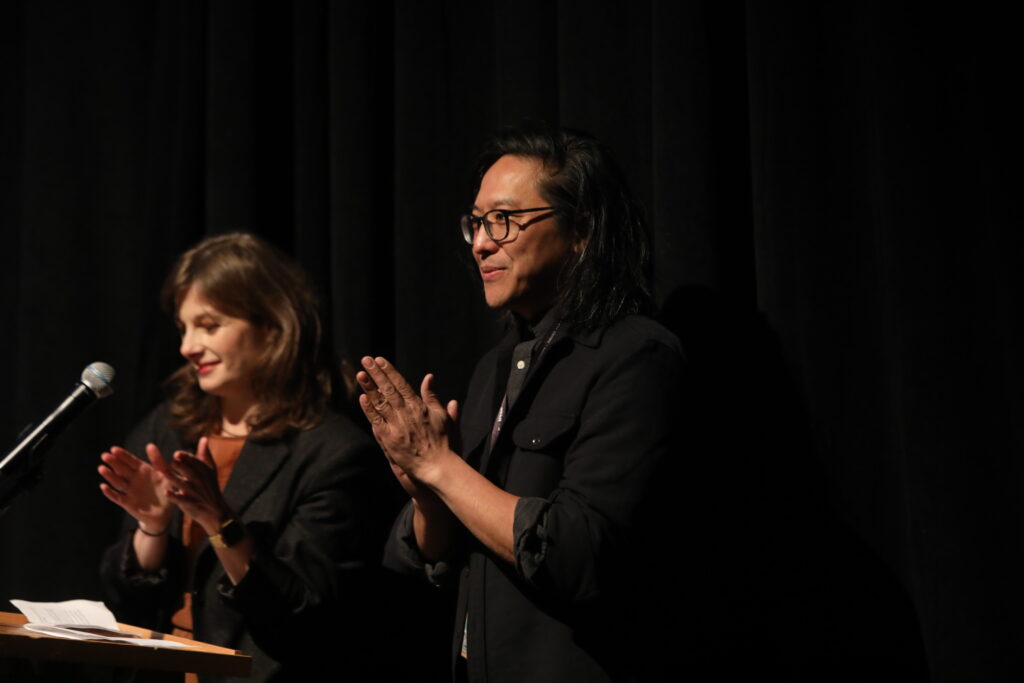
What was a big challenge you faced while making the film?
Seeing up close the incredible pressure campaign and stress this group experienced as they challenged Amazon. If the beauty of the story was the fast familial bond formed, the challenge was witnessing the mounting tensions and complications of long-term organizing as they manifested.
What is something that all filmmakers should keep in mind in order to become better cinematic storytellers?
Find moments of silence. Embrace the uncertainty of the process.
Films are lasting artistic legacies; what do you want yours to say?
We hope this film shows how the pent-up indignation of any group of people can also be a wellspring of collective power. While the insidious nature of capitalism will always fundamentally seek to undermine unionization efforts, the workers in Staten Island proved organizing may get messy, but it is what each individual brings of themselves that makes so much possible. I hope viewers feel a bit of their own restlessness, determination, and potential for change in the collective efforts of these workers and their historic achievement.
What three things do you always have in your refrigerator?
Seltzer, kimchi, peanut butter
What was the last book you read?
Minor Feelings: An Asian American Reckoning by Cathy Park Hong. Working on Ahmed Abdullah’s A Strange Celestial Road: My Time in the Sun Ra Arkestra.
Tell us about your history with Sundance Institute. When was the first time you engaged with us? Why did you want your film to premiere with us?
In 2010, Sundance Institute supported the production of my first feature documentary, High Tech, Low Life. This support came as a buoy in a sea of overwhelming challenges. Attending the Documentary Edit and Story Lab the following summer was like going to a strange, beautiful summer camp/rehab for filmmakers. It was amazing and healing. I am thrilled to premiere Union at Sundance because the conversations and attention that the Festival generates will ensure this story is not ignored.
What’s your favorite film that has come from the Sundance Institute or Festival?
The Law in these Parts, Cameraperson

